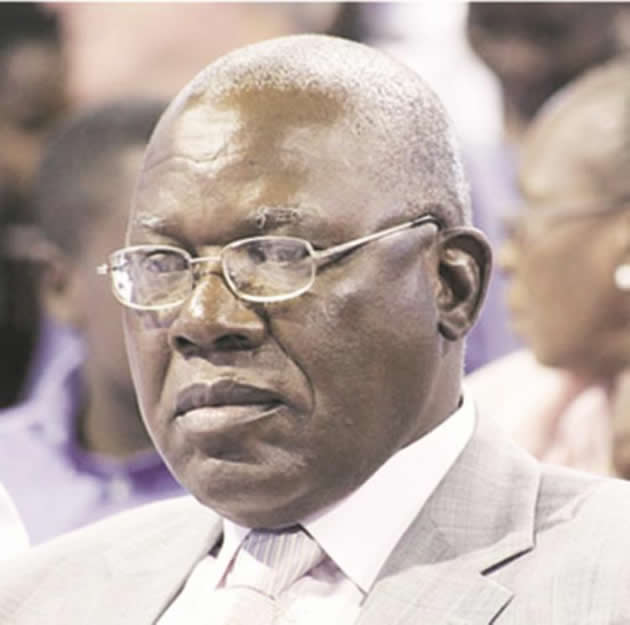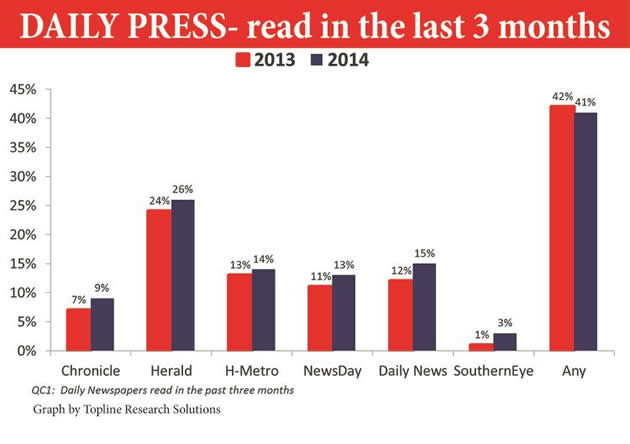The media and parliamentary accountability

Zvamaida Murwira Mr Speaker Sir
Government ministries and departments have a lot to do in adhering to the Constitution of Zimbabwe and the Public Finance Management Act on how to manage public resources if a media workshop convened by Parliament last week is anything to go by.
The workshop, organised by the Parliament of Zimbabwe in partnership with the World Bank for media practitioners in Nyanga last week, was quite an eye-opener on the onerous task the Fourth Estate has to discharge to ensure that obligations of Government ministries, their departments and Parliament are observed.
During the workshop, it also became clear that the media had a lot of homework to do to master adequate knowledge on the obligations of both Parliament and the Executive as provided for by both the Constitution and the enabling legal statutes.
Clerk of Parliament Mr Austin Zvoma challenged the media to gather adequate knowledge to effectively discharge their watchdog role and ensure that Government ministries and departments were complying with several constitutional provisions and the accompanying legal provisions insofar as managing public resources was concerned.
He said the media ought to also know the role of Parliament, in particular, obligations of the Portfolio Committee on Public Accounts which oversees how the country’s purse is being managed.
What came out clearly from the workshop was that media practitioners were not sufficiently conversant with the provisions of the Constitution and Public Finance Management Act thereby hampering their ability to report competently on how public resources are utilised.
It was clear that had media practitioners been conversant with the enabling legal statutes they would have highlighted some breaches by Government ministries and their agencies.
For a start, Mr Zvoma highlighted the role conferred by the Constitution on Parliament.
He quoted Section 119 of the Constitution of Zimbabwe which states that Parliament is vested with supreme authority “to promote democratic governance in Zimbabwe and to ensure that the State and all institutions and agencies of government at every level act constitutionally and in the national interest”.
The above provisions mean that Government ministries and departments should report to Parliament to allow it to scrutinise their operations.
Mr Zvoma also quoted Section 299 of the Constitution, which states that:
“(1) Parliament must monitor and oversee expenditure by the State and all commissions and institutions and agencies of Government at every level, including statutory bodies, Government-controlled entities . . . in order to ensure that:
(a) all revenue is accounted for
(b) all expenditure has been properly incurred; and
(c) any limits and conditions on appropriations have been observed.
But there was one pertinent provision which Mr Zvoma quoted which many journalists were not familiar with.
It was Section 300 (4) which provides that “The minister responsible for finance must;
(a) at least twice a year, report to Parliament on the performance of –
(i) loans raised by the State; and
(ii) loans guaranteed by the State;
(b) at the same time the estimates of revenue and expenditure are laid before the National Assembly in terms of Section 305, table a comprehensive statement of the public debt of Zimbabwe.”
“Is the media reporting on this?” asked Mr Zvoma.
On the above provisions, one would not fail to notice that Section 300(4)(b) had been complied with as Finance Minister Patrick Chinamasa has indeed been tabling Budget estimates and statements before the National Assembly.
The Budget has been debated by backbenchers through the Finance Bill and Appropriation Bill that give legal effect to the fiscal measures.
What the media needs to interrogate that might be food for thought were the first two provisions that talked about the need to update the House on the performance of loans raised by the State and loans guaranteed by the State.
Zimbabwe has over the years signed several loan agreements most of which had been secured through our all- weather friends from the Republic of China.
One which quickly comes to mind which went a long way in helping the country is a loan to construct the Zimbabwe Defence College which is now up and running.
People would need to be updated on how the loan has been performing as and when such information is due.
Another one is the much talked about US$144 million extended to Harare City Council for water and sanitation to upgrade Morton Jaffray Waterworks.
To the Government’s credit, the loan went through Parliament and Mr Zvoma was handy in confirming that and even pledged to give media practitioners copies of the agreement after some journalists said there was a mystery surrounding it.
Another provision of the Constitution is Section 299 which says Parliament: “must monitor and oversee expenditure; must account for all revenue;
“Minister must submit quarterly financial statements and report to the appropriate Parliamentary Portfolio Committee, within sixty days of the end of the respective quarter.”
While the first two might not be very problematic, it is the third one that has seen many ministries being found wanting.
It is a requirement for them to submit quarterly financial statements and reports to Parliament.
The problem seems to be on both sides as Parliament has done little to compel ministries to do so and the failure, on the other hand, by ministries to submit their quarterly financial reports.
Very few ministries have been called before Parliament to give the updates.
Mr Zvoma also cited Section 141 which states “Parliament must:
“Facilitate public involvement in its legislative and other processes and in the process of its committees;
“Ensure that interested parties are consulted about Bills being considered by Parliament, unless such consultation is inappropriate or impracticable; and,
“Conduct its business in a transparent manner and hold its sittings, and those of its committees, in public.”
The provision has also been problematic as some stakeholders have complained that some Bills have been passed without their involvement or consultation.
The Electoral Amendment Act was one such which some stakeholders raised concern over failure to adequately consult.
Mr Zvoma has cited financial constraints as one legitimate reason recognised by the Constitution that could inhibit adequate consultation.
The Clerk of Parliament also cited Section 300(3) of the Constitution which states that:
“Within sixty days after the Government has concluded a loan agreement or guarantee, the Minister responsible for Finance must cause its terms to be published in the Gazette.”
“What role is the media playing in regard?” said Mr Zvoma.
In the final analysis, it is imperative that Government ministries and Parliament discharge their obligations while the media should be conversant with such obligations for it to play its watchdog role.









Comments